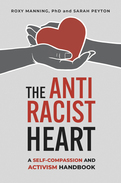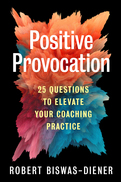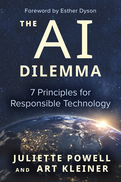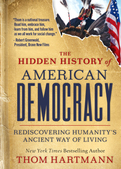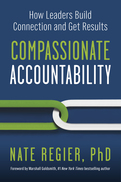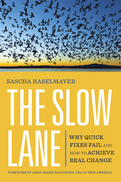Search Results: ""
Results 1231-1236 of 1358
The Antiracist Heart
2023
The Antiracist Heart delivers a unique path to antiracist activism and introspection by applying neuroscience exercises, questionnaires, and journaling prompts based on the book How to Have Antiracist Conversations.
Have you wanted to stand up for the values you believe in, yet found yourself inexplicably held back? Do you long for a way to hold people accountable that doesn't simultaneously demean them? The Antiracist Heart combines cutting-edge neuroscience with ways to build Martin Luther King Jr's vision of Beloved Community, delivering practical tools for the internal and interpersonal work of antiracism. This book prepares the reader to have a new kind of conversation when racist harms occur one that doesn't shy away from hard truths yet doesn't demonize anyone.
Based on the framework of How to Have Antiracist Conversations, the activities in this handbook empower readers to disrupt the ways racism plays out in daily life. In each chapter, Manning, a clinical psychologist and antiracist activist, and Peyton, a neuroscience expert and educator, both trainers in Nonviolent Communication, unpack key concepts like bias and trauma using brain science alongside practices for self-connection and dialogue.
The exercises are:
By better understanding the neuroscience of how brains develop in response to culture, readers gain skills to interrupt implicit biases and racist constructs deep within the brain. The activities invite introspection and a radical form of self-compassion that make antiracist dialogues and actions possible, thus creating real change.
Have you wanted to stand up for the values you believe in, yet found yourself inexplicably held back? Do you long for a way to hold people accountable that doesn't simultaneously demean them? The Antiracist Heart combines cutting-edge neuroscience with ways to build Martin Luther King Jr's vision of Beloved Community, delivering practical tools for the internal and interpersonal work of antiracism. This book prepares the reader to have a new kind of conversation when racist harms occur one that doesn't shy away from hard truths yet doesn't demonize anyone.
Based on the framework of How to Have Antiracist Conversations, the activities in this handbook empower readers to disrupt the ways racism plays out in daily life. In each chapter, Manning, a clinical psychologist and antiracist activist, and Peyton, a neuroscience expert and educator, both trainers in Nonviolent Communication, unpack key concepts like bias and trauma using brain science alongside practices for self-connection and dialogue.
The exercises are:
- Flexible
- Designed to work for individuals or groups
- For people of the Global Majority (BIPOC) or white people
- For those with or without experience in addressing the effects of racism
By better understanding the neuroscience of how brains develop in response to culture, readers gain skills to interrupt implicit biases and racist constructs deep within the brain. The activities invite introspection and a radical form of self-compassion that make antiracist dialogues and actions possible, thus creating real change.
Positive Provocation
2023
Hone your skills and strengthen your practice with this series of twenty-five fresh and provocative questions for reflection that challenge the conventional wisdom in the coaching profession.
Like any established profession, coaching is full of unexamined assumptions. These need to be regularly questioned and tested to keep the profession vital and valuable. Coaches need to engage in the same kind of scrutiny and self-examination that offers such powerful benefits to their clients.
In Positive Provocation, coaching thought leader Robert Biswas-Diener asks a series of twenty-five provocative and sometimes playful questions that take a fresh look at some of coaching's most cherished beliefs. What if coaches had agendas? Why are ethics so boring? What's so great about interrupting? Can we trust eureka moments? What if we used less empathy?
This is not an attack on the coaching profession-Biswas-Diener writes with a light, conversational, and often humorous touch. These are positive provocations, meant to stimulate your curiosity, engage you with the latest research, and invite you to see your practice with new eyes.
Biswas-Diener covers philosophies of coaching, communicating with clients, common coaching concepts, coaching interventions, and a big final provocation: should coaching be informed by science? This book will give you a richer understanding of the coaching process, make you more articulate about your own beliefs, and allow you to feel more engaged with the craft.
Like any established profession, coaching is full of unexamined assumptions. These need to be regularly questioned and tested to keep the profession vital and valuable. Coaches need to engage in the same kind of scrutiny and self-examination that offers such powerful benefits to their clients.
In Positive Provocation, coaching thought leader Robert Biswas-Diener asks a series of twenty-five provocative and sometimes playful questions that take a fresh look at some of coaching's most cherished beliefs. What if coaches had agendas? Why are ethics so boring? What's so great about interrupting? Can we trust eureka moments? What if we used less empathy?
This is not an attack on the coaching profession-Biswas-Diener writes with a light, conversational, and often humorous touch. These are positive provocations, meant to stimulate your curiosity, engage you with the latest research, and invite you to see your practice with new eyes.
Biswas-Diener covers philosophies of coaching, communicating with clients, common coaching concepts, coaching interventions, and a big final provocation: should coaching be informed by science? This book will give you a richer understanding of the coaching process, make you more articulate about your own beliefs, and allow you to feel more engaged with the craft.
The AI Dilemma
2023
The misuse of AI has led to wrongful arrests, denial of medical care, even genocide-this book offers 7 powerful principles that business can use now to end the harm.
AI holds incredible promise to improve virtually every aspect of our lives, but we can't ignore its risks, mishaps and misuses. Juliette Powell and Art Kleiner offer seven principles for ensuring that machine learning supports human flourishing. They draw on Powell's research at Columbia University and use a wealth of real-world examples.
Four principles relate to AI systems themselves. Human risk must be rigorously determined and consciously included in any design process. AI systems must be understandable and transparent to any observer, not just the engineers working on them. People must be allowed to protect and manage their personal data. The biases embedded in AI must be confronted and reduced.
The final three principles pertain to the organizations that create AI systems. There must be procedures in place to hold them accountable for negative consequences. Organizations need to be loosely structured so that problems in one area can be isolated and resolved before they spread and sabotage the whole system. Finally, there must be psychological safety and creative friction, so that anyone involved in software development can bring problems to light without fear of reprisal.
Powell and Kleiner explore how to implement each principle, citing current best practices, promising new developments, and sobering cautionary tales. Incorporating the perspectives of engineers, businesspeople, government officials, and social activists, this book will help us realize the unprecedented benefits and opportunities AI systems can provide.
AI holds incredible promise to improve virtually every aspect of our lives, but we can't ignore its risks, mishaps and misuses. Juliette Powell and Art Kleiner offer seven principles for ensuring that machine learning supports human flourishing. They draw on Powell's research at Columbia University and use a wealth of real-world examples.
Four principles relate to AI systems themselves. Human risk must be rigorously determined and consciously included in any design process. AI systems must be understandable and transparent to any observer, not just the engineers working on them. People must be allowed to protect and manage their personal data. The biases embedded in AI must be confronted and reduced.
The final three principles pertain to the organizations that create AI systems. There must be procedures in place to hold them accountable for negative consequences. Organizations need to be loosely structured so that problems in one area can be isolated and resolved before they spread and sabotage the whole system. Finally, there must be psychological safety and creative friction, so that anyone involved in software development can bring problems to light without fear of reprisal.
Powell and Kleiner explore how to implement each principle, citing current best practices, promising new developments, and sobering cautionary tales. Incorporating the perspectives of engineers, businesspeople, government officials, and social activists, this book will help us realize the unprecedented benefits and opportunities AI systems can provide.
America's most popular progressive radio host and New York Times bestselling author Thom Hartmann paves the way to saving our democracy.
In this powerful, sweeping history and analysis of American democracy, Thom Hartmann shows how democracy is the one form of governance most likely to produce peace and happiness among people.
With the violent exception of the Civil War, American democracy resisted the pressure to disintegrate into factionalism for nearly two centuries, and now our very system of democratic elections is at stake. So how do we save our democracy?
Hartmann's newest book in the celebrated Hidden History Series offers a clear call to action and a set of solutions with road maps for individuals and communities to follow to create a safer, more just society and a more equitable and prosperous economy.
In this powerful, sweeping history and analysis of American democracy, Thom Hartmann shows how democracy is the one form of governance most likely to produce peace and happiness among people.
With the violent exception of the Civil War, American democracy resisted the pressure to disintegrate into factionalism for nearly two centuries, and now our very system of democratic elections is at stake. So how do we save our democracy?
Hartmann's newest book in the celebrated Hidden History Series offers a clear call to action and a set of solutions with road maps for individuals and communities to follow to create a safer, more just society and a more equitable and prosperous economy.
A compass for leaders lost in the paradoxical space between attention to people and attention to results—with Compassionate Accountability you don't have to choose!
Sadly, compassion and accountability are too often in tension-leaders feel they have to pick one or the other. But solely prioritizing accountability can create toxic work environments that drive away good talent. On the other end of the spectrum, being too nice can compromise performance and productivity.
Finding harmony between compassion and accountability is the ultimate catalyst for improved results and a thriving workplace.
The solution is recognizing that compassion and accountability are not opposites. In fact, accountability is an element of compassion. Compassionate Accountability is the process of building connection while getting results. This book shows how this foundational mindset, philosophy, and way of living can lead to a thriving organizational culture. It covers such topics as these:
Leaders seeking a renewed sense of fulfillment in their roles and increased leadership impact will find inspiration, guidance, and a road map for cultural transformation.
Sadly, compassion and accountability are too often in tension-leaders feel they have to pick one or the other. But solely prioritizing accountability can create toxic work environments that drive away good talent. On the other end of the spectrum, being too nice can compromise performance and productivity.
Finding harmony between compassion and accountability is the ultimate catalyst for improved results and a thriving workplace.
The solution is recognizing that compassion and accountability are not opposites. In fact, accountability is an element of compassion. Compassionate Accountability is the process of building connection while getting results. This book shows how this foundational mindset, philosophy, and way of living can lead to a thriving organizational culture. It covers such topics as these:
- Why you can't practice compassion without accountability
- How to turn on the three switches of the compassion mindset—and the predictable damaging consequences when they're turned off
- The key role Compassionate Accountability plays in a healthy leadership culture
- Six areas to focus on to start building your culture of Compassionate Accountability
- Five common barriers to compassion for leaders—and how to overcome them
Leaders seeking a renewed sense of fulfillment in their roles and increased leadership impact will find inspiration, guidance, and a road map for cultural transformation.
The Slow Lane
2023
Avoid the speed trap! Discover how changemakers can find lasting solutions to urgent social problems through a proven 5-step process for listening thoughtfully, building broad support, and exploring unconventional options.
Society celebrates leaders who promise fast, easy solutions to the world's problems—but quick fixes are just mirages that fade, leaving us with the same broken systems. The truth is, effective social change happens through slow, intentional actions. The author, a globally acclaimed social entrepreneur, offers a 5-step process for taking the slow lane to change-the lane that gets you to the right place faster:
Using dozens of examples—prison reform in England, urban development in Venezuela, healthcare in the Navajo Nation, early childhood education in New York, and many more—The Slow Lane shows how, by following the principles taught in this book, readers can create lasting change.
Society celebrates leaders who promise fast, easy solutions to the world's problems—but quick fixes are just mirages that fade, leaving us with the same broken systems. The truth is, effective social change happens through slow, intentional actions. The author, a globally acclaimed social entrepreneur, offers a 5-step process for taking the slow lane to change-the lane that gets you to the right place faster:
- Listening—Listen to build trust, which can change hearts and minds and allow for something new to emerge.
- Holding the urgency—Accept that even in moments of crisis you can move only at the speed of trust instead of rushing into action.
- Sharing the agency—Create an inclusive environment where everyone can lead.
- Healing democracy—Build bridges that allow marginalized people to participate.
- Maintaining curiosity—Be inspired by nontraditional sources.
Using dozens of examples—prison reform in England, urban development in Venezuela, healthcare in the Navajo Nation, early childhood education in New York, and many more—The Slow Lane shows how, by following the principles taught in this book, readers can create lasting change.


